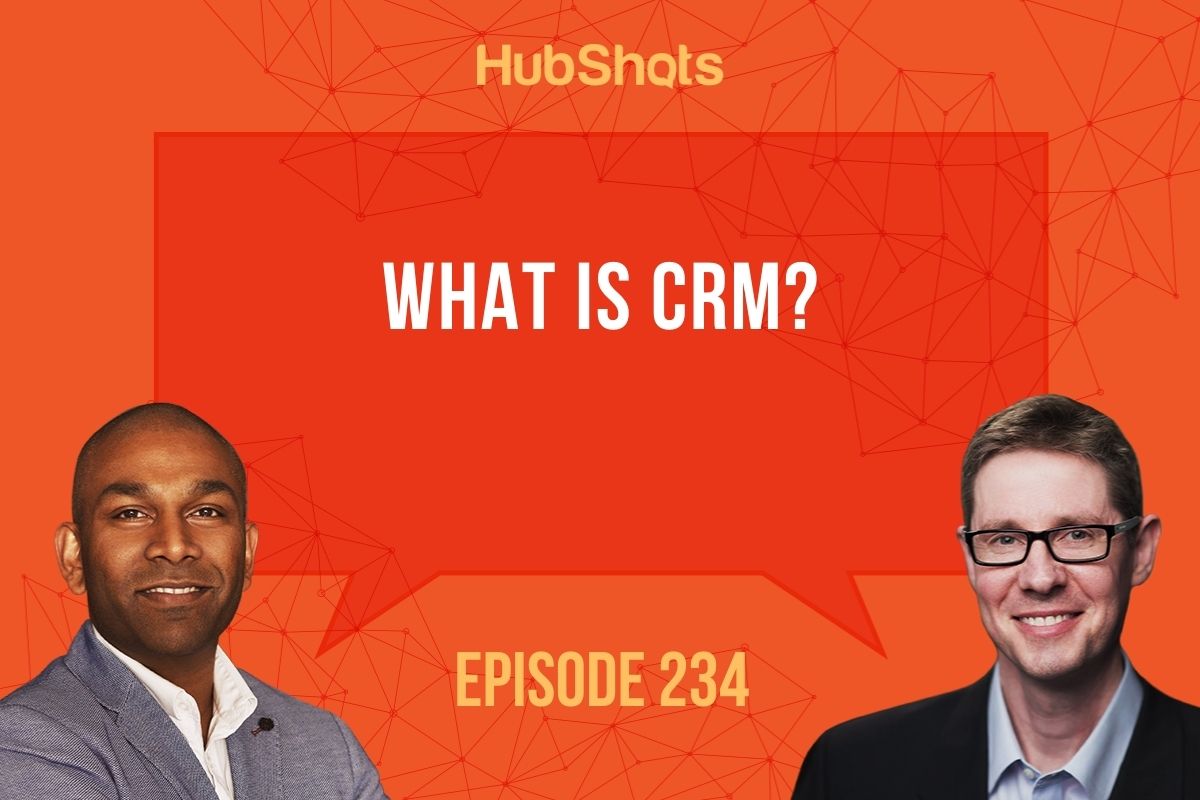Episode 239: HubSpot Snippets, HubSpot RSS Emails
Welcome to HubShots Episode 239: HubSpot Snippets, HubSpot RSS Emails This edition we dive into: Our upcoming HubShots 28-Day Challenge Subscribe...
You can listen to this episode of the show here.
Did a colleague forward this episode to you? Sign up here to get yours every Friday.
Please forward this on to your work colleagues.
Recorded: Monday 08 February 2021 | Published: Friday 12 February 2021
Interesting to think through what the definition of CRM (ie customer relationship management) is.
It’s one of those terms we all intuitively understand - and yet when pressed to explain it we all have different definitions.
Salesforce owns most of the mindshare for the term - I’m sure you’ll agree - and have worked really hard to dominate Google results (shoutout to Mark Vozzo and the salesforce SEO team at the time):
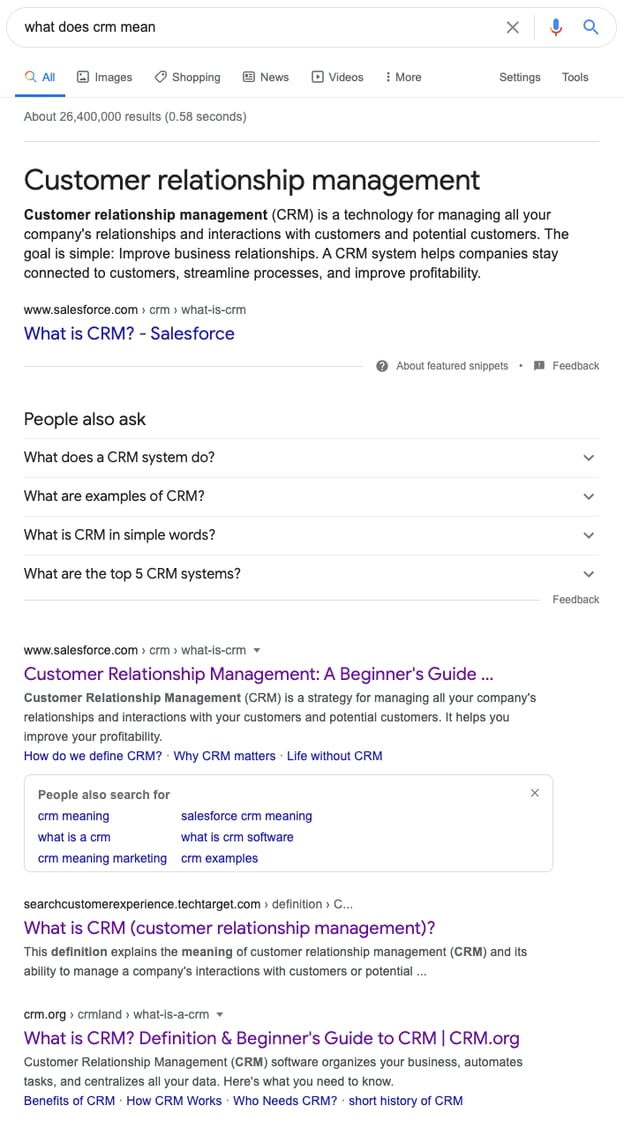
Interestingly Microsoft owns the broad term:
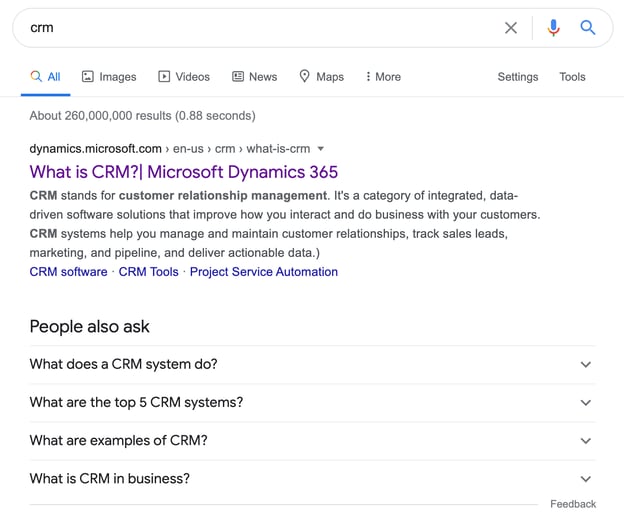
So what does this have to do with HubSpot and marketing?
When you think of HubSpot, do you think of CRM? Or do you think of marketing predominantly?
If you do consider HubSpot to be CRM focussed, do you think of this just related to the Sales Hub? Or do you think of it holistically across the suite?
Start thinking more broadly about CRM and its definition. If you are a marketing leader, consider embracing the term ‘CRM’ this year.
Aside: will be interesting to see whether HubSpot’s ranking for CRM related searches improve - currently I see them down around #5 for terms, below MailChimp and others:
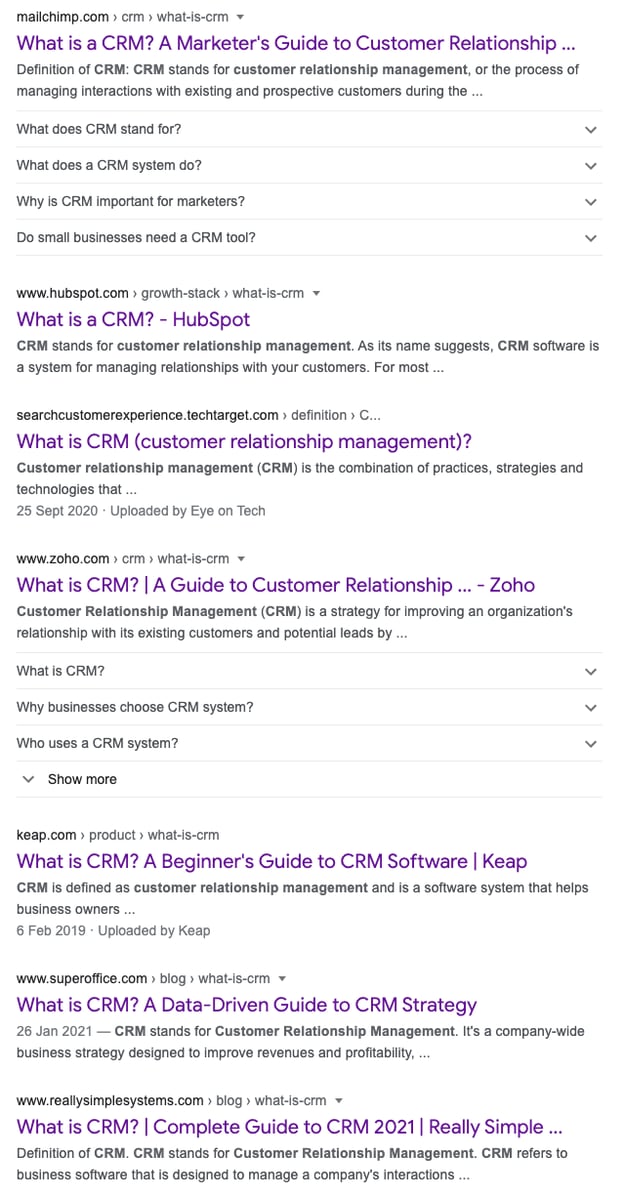
Note how marketing automation systems (MailChimp, Keap, HubSpot, Zoho) are all targeting the term.
BTW check out each of the top 10 results - they are all excellent examples of pillar content.
We can often limit our thinking of marketing to just the lead acquisition and nurturing side, and forget that a significant portion of the role is (or should be) focused on customers.
Finally, take a look at how many times we’ve referenced CRM on the show.
Here’s a few quick items of interest we noticed:
Available in Marketing Hub Pro, the SEO tool has a number of handy audit checks.
Simply scan your site from Menu > Marketing > Planning and Strategy > SEO
The initial scan can take up to 6 hours to finish and add recommendations. Once that’s done, then you can view the recommendations. Here’s some of the recommendations for the main HubShots site:
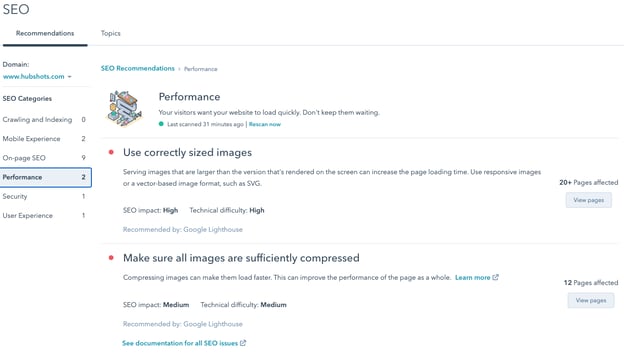
Some recommendations are useful - others are not eg this one to add a Title to the Search results page, which I don’t think is actually possible:
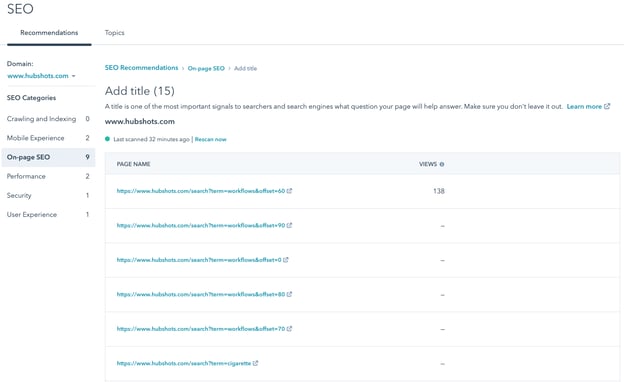
Also, some are false positives that when you attempt to fix, aren’t actually issues
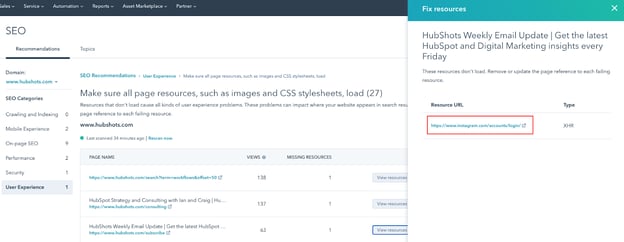
Also, you can scan URLs not in your portal - just for fun we (of course) ran an audit on the HubSpot site - here’s the results:
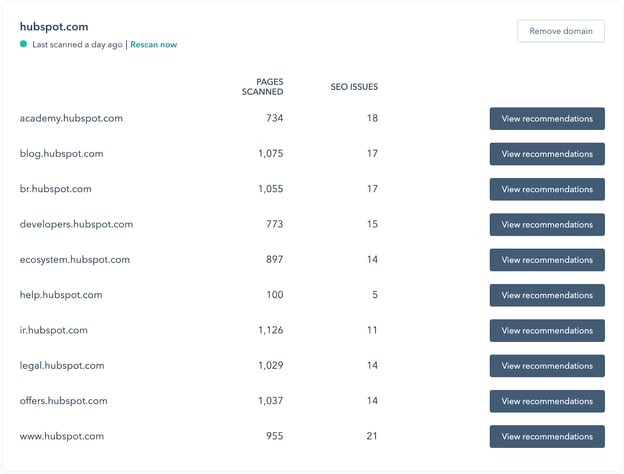
This could be a handy tool for scanning your client’s (or prospect’s) sites for them and notifying them of important issues.
On another ‘topic’ does anyone even look at the SEO topics tool anymore…?
If you are using HubSpot Sales Professional/Enterprise this is something you can get started with. Not to mention the already provided templates to get your journey started.
The 2 below are the most common to get started with.
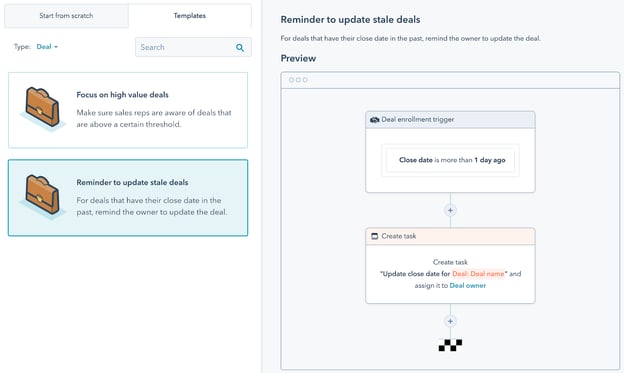
When you get past this there are things that you may want to do. For example, if the deal gets to a certain stage you can create a task informs customer service that there is now an associated serial number and delivery date so they can action the request.
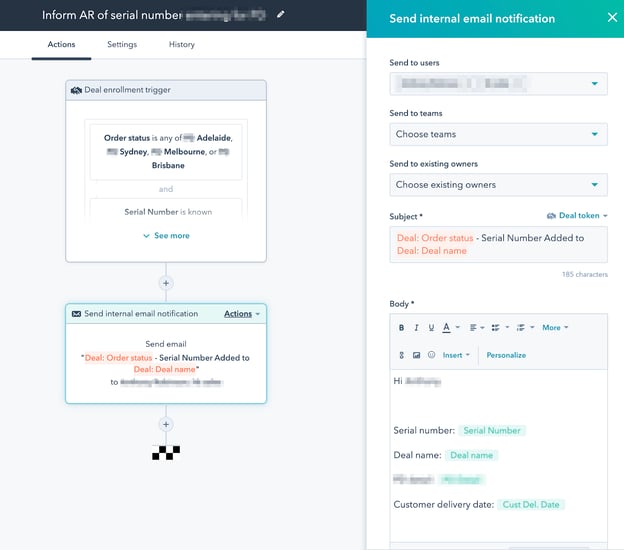
What is it? Net Promoter or Net Promoter Score is the percentage of customers rating their likelihood to recommend a company, a product, or a service to a friend or colleague as 9 or 10 minus the percentage rating this at 6 or below on a scale from 0 to 10.
Did you know it is something you can do easily using Service Hub Professional/Enterprise?
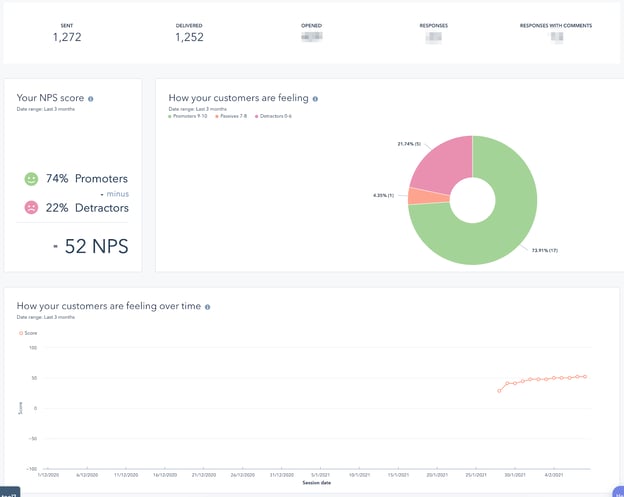
You can do it via email or on the website.
Action:
Here are instructions on how to get started from the HubSpot Knowledge Base.
HubSpot’s cookie policy tool has extra options for customising what is required versus optional. This Knowledge Base article goes through the options. Allows adding categories of cookies eg analytics, advertising, etc.
However, implementation of the cookie management requires a developer to be involved.
We haven’t implemented any of this ourselves - just mentioning as it may be of interest especially to our European listeners.
Every so often we see these bot spam attacks that drive up organic traffic reports in our Google Analytics accounts.
There was one recently on 31 Jan (US time). Some of our client’s sites were hit, plus our own sites. Here’s the XEN impact:
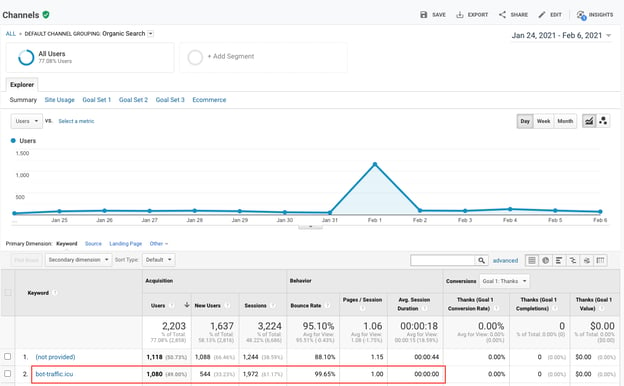
The high bounce rate and the 0 duration time on site are the giveaways.
They do this so that you are tempted to visit the link (ie in researching the issue) and then discover they are selling a service to send traffic to your site. Yep.
You can ignore this traffic. You can create filters to exclude it from reports, but they won’t work retroactively - instead you can create a segment to exclude.
What does ‘value’ mean to a business?
I’ve been working through Donald Miller’s excellent Business Made Simple courses lately, and found them to be useful reminders of business principles that are obvious yet easily neglected.
It occurs to me that there is nothing really new, instead just obvious stuff that we need to continually remind ourselves of, and implement. We often ‘know’ it, but don’t ‘execute’ it.
When it comes to marketing - whether you are an agency, or a marketing executive in a company - how often do you take a step back and think about the ‘value’ you are providing?
After all, what is ‘value’ anyway?
Consider this maxim: we all want to be better versions of ourselves.
Do you agree? Let’s assume it is true for the sake of this discussion.
We want to be better versions of ourselves. Our customers want to be better versions of themselves. (You could even perhaps personify and say that companies want to be better versions of themselves.)
If you help your customers be better versions of themselves - you are providing value. And the level of the value you provide is usually reflected in the compensation you receive for helping them.
Essentially it’s about transformation.
Providing a high level of transformation for a customer is the essence of value.
So, how do we incorporate this understanding into our daily marketing activities?
By understanding the outcome we’re aiming for.
For example, as an agency, us helping a marketing manager be a better version of themselves is helping them learn, implement and achieve results in their professional work - helping them grow the results of their department and company. The company in turn helps to transform their customer’s results.
Customers (usually) acknowledge the transformation (ie value) you provide via financial compensation (ie how much they are willing to pay you).
Consider your daily marketing activities. Are you focussed on ticking off items on a list, or are you thinking through the outcomes these activities provide? The transformation they enable.
Takeaway: Focusing on the outcomes is the way to increase value.
One further important takeaway: Communicating this to your customers is also important: often they can’t see past the list of activities you’re doing - they don’t understand the transformation (value). Make sure you explain why you’re doing what you’re doing. Explain the transformation it enables and thus the value you are delivering.
Via the HubSpot product updates blog.
This time a year ago HubSpot was promoting their PieSync purchase with new integrations on the App Marketplace. We chatted about PieSync in episodes 182, 183 (where I discussed why I find the PieSync login so infuriating) and 187, amongst others.
I finished Benjamin’s (from Loves Data) course on GA4 over the weekend - so useful in getting up to speed on Google Analytics 4. Well worth the $75.
Check out all of Benjamin’s courses here.
BTW I’ve been trying to work out why I purchased his course(s). It is definitely a crowded space with tons of courses available for Google Analytics (many much cheaper) and even from Google themselves (for free). It’s useful to think back through your own purchasing decisions and decompile what your journey was.
I think a key part was trust - I’ve followed him for many years, he has sent very straight forward emails that provide value, has been clear about what he is offering (no gimmicks and fake scarcity), and when I do dig into them they are high value (no fluff) and help me level up my skills quickly.
He has an Analytics Essentials course that you can enrol in for free.
“Value-driven professionals see themselves as an economic product on the open market and are obsessed with giving people a great return on their investment.”
This future looking video from Westinghouse is from the 1950s - so funny to think that it's only in recent years that we are coming back to the idea of an all electric home - powered by solar, with battery storage, and everything electric (water, cooking, heating).
Sometimes marketing is ahead of its time.
Joe’s podcast is back (and has been for a while, although I only just realised). Most episodes are less than 10 mins. Tons of content marketing tips. Well worth a listen.
Most will know that Joe was the founder of Content Marketing Institute, which he sold a few years ago.
This is pretty good - two brands bidding on a brand:
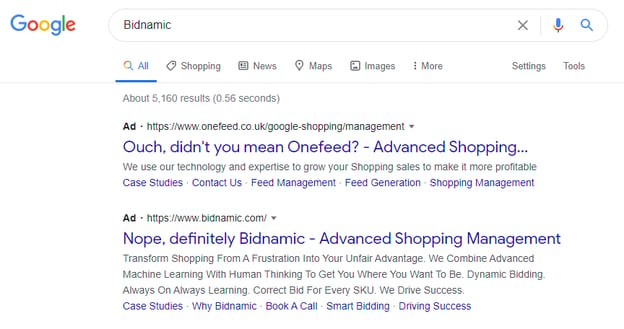
BTW here’s why you should consider bidding on your own brand terms in Google Ads.
Simo Ahava has done it again, with a post covering how to use GTM to set up tracking of Core Web Vitals in GA4.
We set this up on the HubShots site, pushing data through to our GA4 property.
Connect with HubShots here:
Connect with Ian Jacob on LinkedIn and Craig Bailey on LinkedIn
HubShots, the podcast for marketing managers and sales professionals who use HubSpot, hosted by Ian Jacob from Search & Be Found and Craig Bailey from XEN Systems.
HubShots is produced by Christopher Mottram from Podcastily.
Please share this with colleagues - it helps us improve and reach more marketers.
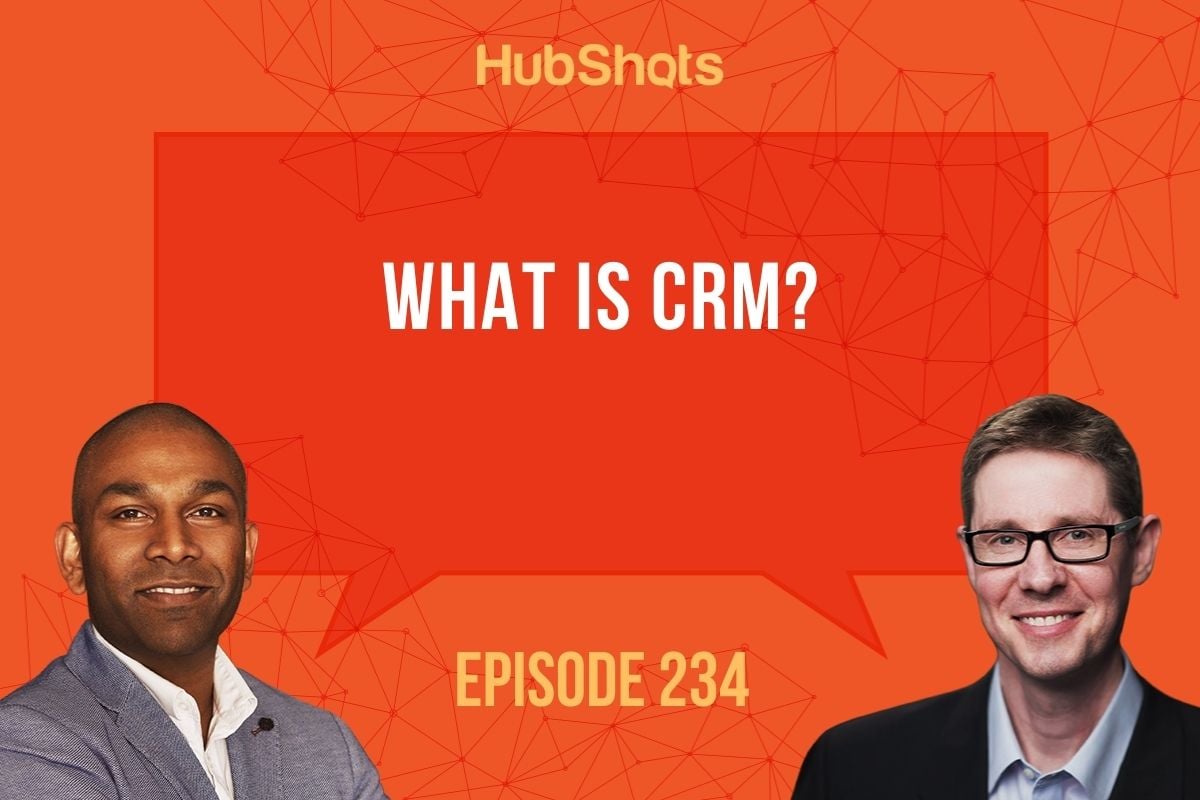
- Hi, everyone. Welcome to HubShots Episode 234. In this episode, we think about CRM and how it relates to marketing, HubSpot's SEO tools update, deal workflows, NPS surveys and everything analytics. You're listening to Asia Pacific's number one HubSpot focus podcast, where we discuss HubSpot tips, tricks and strategies for growing your sales service and marketing results. My name is Ian Jacob from Search & Be Found and with me is Craig Bailey from XEN Systems. How are you Craig?
- I'm well, Ian, glad to be here. And by the way, I just wanted to mention to listeners, if you haven't already, make sure you sign up for our show notes. Pretty easy, go to hubshots.com/subscribe, because we put a lot of work into these show notes every week, hours and hours, and there's a whole bunch of extra stuff there. So make sure you get them. They come out every Friday morning.
- And listeners, if you want to listen to us on your computer on YouTube, you can too. You're just not gonna see our faces but you can listen to us. Now, Craig what is our growth thought of the week? What is CRM?
- It's interesting to think through this topic, CRM. Ask 10 people what CRM is and you get 10 different answers. And so I thought that might be interesting, especially in terms of marketers because I suspect most marketers think of CRM as something more on the sales side. And that's the question, isn't just the sales side? Does it include marketing? What about after sales support? Is that part of CRM? Is it just a list of contacts? CRM. So interesting to me thinking about all the major players have pages. By the way good examples of pillar pages here, Salesforce, I think owns the Mindshare. Would you agree?
- I would agree.
- They've kind of dominated it. And if you look at Google results, we've got a whole bunch of screenshots in the show notes. By the way, another reason you should sign up for the show notes. Salesforce kind of own all the terms. What is CRM? What is a CRM product, et cetera. Interestingly, Microsoft owns the broad term to CRM. That's right, at number one. But Salesforce is planning on that. Cause I know Salesforce put a lot of effort into this. Shout out to Mark Vaseux who was with the Salesforce team at the time. I know did a lot of work to rank number one for CRM. So a bit of a battle on there. But what's interesting though, is that you find one of the high ranking pages was MailChimp on CRM. They've been pushing for it. Then you see Zoho and of course HubSpot in there for this term on CRM. So what's your thoughts on this, Ian.
- I just wanna take a step back. And so people throw around the word CRM. I'm gonna read you the definition of CRM, Craig. CRM is customer relationship management is a technology for managing all your company's relationships and interactions with customers and potential customers. The goal is simple, improve business relationships. And a CRM helps companies stay connected to customers, streamline processes and improve profitability. And this has come from that featured, is it the featured snippet from Salesforce? Am I right?
- It is, and all of the big vendors have similar pages talking about it. And that's pretty much it. It is the customer relationships that happen. So then it comes back to the question. What was that, marketing? Because at what point does marketing transition over to sales and perhaps a transition to support and things? They're all part of marketing. So a good marketing department is across all five cycle stages including customer. So I think this is an interesting topic. I think Mindshare is changing. We have a lot of clients who they might say, uh, we need a quoting tool. And you say, oh, so CRM, no, no, no, we don't need a CRM, we need a quoting tool. Like, oh, okay. And that's obviously they don't have, well, the same understanding of a CRM that perhaps I have. And of course marketing teams can be similar. They're like, oh no, that's over on the sales side. I think the big takeaway just from this opening thought of the week is that CRM is all encompassing.
- Correct. And really when you think about it, it's got customer at the core, doesn't it Craig? And if you think about the flywheel, the customer is at the core. And so I think it raises an important question about how people think about CRM moving forward. And I know we discussed earlier, it's like, how does this relate to marketing? And I think one thing that HubSpot's done well from the start is for example, have that customer timeline showing where their journey started and all the points of interaction up until today and really highlighting what are the key aspects of that?
- By the way I thought it was interesting when I was thinking through this topic, if you do a search through HubShots using the nice HubSpot search function, CRM, the word and the term turns up heaps. It's in tons of our episodes. We talk about CRM all the time. Did you realize that? I didn't realize that. I'm like, oh, we actually talk about this all the time. And I dominantly got my marketing hat on. Yeah, there it is. It's peppered in our language all the time. And so maybe it is actually more prevalent than you think.
- All right, let's listen onto our quick shots of the week. And here's a few items that we've noticed. And Craig, you brought my attention to this, about HubSpot updating the acceptable use policy.
- Yeah, basically they, like many vendors and platforms are clamping down on hate speech, discrimination and anything that incites violence. And they are pretty clear. They're basically, if you support that, we're gonna boot you off of our platform. And I guess they're just getting the legal bits in place. I'm sure they would have done that previously anyway. Now they're just making it much easier. So yeah, good to see.
- And the next thing is the improved SEO tool within the HubSpot tools.
- It's got a bunch of new checks and I was so interested in this particular, little quick take that we're gonna do a whole shot on this in a second.
- And finally, we have HubSpot adding an update to bulk import of images from a URL.
- This is really handy. We've actually had this case with a big pillar page on a WordPress site, wasn't a blog post. I've been there. And then we just wanted to bring that over into HubSpot. And it's like, oh, well, copying the content's easy. Getting all the images over, I'll one by one upload them, bulk import tool, thank you.
- Massive time saver. And the very final one was, HubSpot bought the household, Craig.
- We'll chat about that in a future episode. Just the strategy around that direction. I remember, and in fact, in the blog post where HubSpot talk about it, Dharmesh said, software companies will become media companies. That's an interesting take.
- All right, onto our HubSpot marketing feature of the week, Craig. And this is the HubSpot SEO audit tool within HubSpot marketing professional and enterprise.
- Really revamping this SEO tool, which by the way, is still hidden away on the media. And what is it under strategy SEO? I wonder if they'll pull that out, just to be under the marketing first level. But remember it used to be topics. It was around topic clusters, Google pages that kind of hub and spoke model. That's kind of, and I wonder if anyone uses that. I've used that lately, but now it's all about recommendations. And then first of all, it was about giving your SEO recommendations for your own sites. Now they've added this thing where you can actually put in any URL. So I guess if you're an agency, you could use this to look at prospects sites or customer sites and give them some recommendations, but they bring in their own little mini SEO audit tool in the HubSpot platform.
- That's right, Craig. And I think it was really well broken down, they're making it easy for people to see what actions can be taken from all of these recommendations.
- And some are good, some are bad. We've got a whole bunch of examples in the show notes, another reason to sign up folks. But, we give some examples where there's some good and then there's also some false positives, things that they highlight and flag as, I should change this. And when you look at them, you're like, no, that doesn't really work. The Instagram login link doesn't work. In fact, no, that's not really a problem. So I think they've still got some nuancing and finessing of the tool, but look, it's actually getting pretty good.
- You cannot complain, can you Craig?
- We of course ran through hubspot.com.
- What is this?
- What did I read?
- Have a look at the show notes because you'll see some interesting screenshots with SEO issues and pages scanned.
- Yeah, we should send this report to Matt Barbie. I think, Ian, get him onto some of those recommendations.
- All right, onto our HubSpot's sales feature of the week. And listeners, if you're using HubSpot sales professional enterprise, this is something that you should definitely get started with. And I'm gonna highlight two most common deal workflows to start with. And the first one being, to focus on high value deals. And so it's pretty simple. It's like if a deal value is over this, then you need to get a notification to look at that. And probably more so if a deal is being sent to somebody that is not necessarily working on it initially but then gets notified that they are working on it. And the second one is to remind it to update stale deals. And this happens very often and people will ignore things and not close them off appropriately. And so what this does is, put a task in your task to remind you to update the close date for a deal.
- So would it be fair to say, when we think about contact workflows--
- Yes.
- Marketing workflows, you're really about communicating with contacts? It's a very external focus although you can have internal notifications, of course. Whereas deal workflows is very much internally focused. It's about the sales team working on the deals and keeping them updated.
- Exactly. And then I've got a real life example of this, of another application is that, in the example I've given is someone within the business, a task getting created to inform them that a serial number for a product has been entered into HubSpot. And what that essentially does, it goes to customer service and it says the serial number has been added and what deal it's associated with and when the customer delivery date is. So customer service can pick this up and they can go and make sure that that delivery has taken place because now they have all the information that they need to get the job done. And so this is just another little application of how you can utilize a deal workflow. All right, Craig, onto a HubSpot service feature of the week. This has to do with NPS surveys. Now we have spoken about this in earlier episodes but I wanna highlight this because it's a very underutilized feature of the platform and something that's really easy to get started with. And you've gotta be having service professional enterprise to get this happening. So I'm just gonna take a step back. Now what is a net promoter score and why would we use it? So a net promoter score is a percentage of customers rating the likelihood to recommend a company practice service to a friend or colleague as a nine or 10, minus a percentage rating that is six or below on a scale of zero to 10. So listeners, did you know that it's actually not hard. Even the email that gets sent out essentially looks like a bunch of numbers from, little buttons from zero to 10 and people click it to indicate how they're feeling about recommending your service. And then what happens in the process is it'll give them an option to say, oh, we wanna understand if you gave it a nine to 10, we wanna understand why you gave us a nine or 10. And on the flip side of that is when they answer or don't answer, essentially the thank you is, would you mind leaving us a review? So you could give a link to your Google business listing or to other places where you collect reviews. On the other side, if somebody answers with between a zero and a six, for example, they could just say, can you tell us how can make it better? And then get some valuable feedback from the customer as to how to rectify things. In the show notes there is a screenshot and what I have done, why I wanted to highlight this too is, it really gives you very good data in terms of people that necessarily don't say things to you when given an opportunity will feed back that information. And if they really feel strongly about it, they will say something in respect to the data. So here's a good place to start when you are starting with this to get an initial baseline, is to survey all your customers. So you've got a starting baseline. The next point, when you set up the survey, that'll automatically happen, is because you're choosing a list and a certain criteria, is to run it for anyone who has become a customer in the last 30 days or just over 30 days time. And that will keep ticking over to make sure that you're actually getting people that are becoming customers. The next thing you might wanna set up is, thinking of key points of interaction that you have with your customers. So are there major things that happen? So if we think about HubSpot, for example, let's say an event, like Inbound, maybe it is one of those points in time where they might want to create an NPS survey to understand how people are feeling post the event. So there's another point. So in your business, think about it. Do you run monthly events, do you run quarterly events, et cetera. And where are these points where you can get data from. Now in a, say a building company, for example, they might collect this data at each of the key points when they finish the sales process, when they start their building journey, maybe even during their building journey and even at the end and post their building journey, maybe after the warranty period. So these are the key aspects that you might wanna get data.
- Can I ask you, with your clients that you use this for, there's one side is collecting the data. What processes do they have in place to actually respond to that? So they're getting back the scores. I kind of got a baseline. Our scores went down or our scores went up. How do they act on that?
- Okay, I'll give you a real life example, Craig. With one of our customers that happened to run this for the very first time, people did feedback and actually wrote down some feedback. So what they essentially did was, action that feedback and call the customer and talk to the issue. So one of them sounded silly at the time. So I'll give you an example. They do a lot of service. So they have service technicians going out. I think one of the things that happened was, a service technician went out, didn't have the parts. So they're charging the call-out fee. Now when they went out the second time, they charged them again a call-out fee and to fix the issue. And so the customer's feedback was, you do a great service but I think this is really unfair that you charged me twice for somebody coming out because you didn't have the part. And I take that onboard and go, yeah, that doesn't sound very fair to me. But it's things like that that they might not be aware that it's actually happening because it's just a billing issue. You could say the technician marked, he's been out there twice, someone in billing went, oh, okay, I'm charging two lots of fees and the cost of parts for that trip. Not realizing that was it actually a true transaction or is it the right thing to do based on who the customer is and just little things like that. So just gives us an opportunity to actually--
- It's almost like the NPS survey was really just the prompt to get the feedback. What about the overall scores though? So I get the value of the feedback, but the scores, let's say you're sitting around a management meeting in the month and an NPS has gone up. What's the action item from that? Is it just like, oh great things are doing well. And then what if the next month it goes down? How have you seen companies adapt to that? I'll tell you the reason I asked 'cause I quite often get these surveys. I fill them out and I feel like, oh, that's just gone into a black hole. It hasn't achieved anything. And of course everyone is doing surveys. It's almost like every company I deal with now, NPS survey. And it's almost like, oh, have I had my coffee this morning is kind of the score I give. I guess that all gets, if you get enough results, that'll get saving data over time. I'm just interested in what your customers have done with actually making that actionable. It's all great to get the data and the scores, but how do you make it actionable? What are some of the things that they do?
- So on the scores, I guess they're keeping an eye on whether it is going up or down. That's as much as I would say that they are doing. And then looking to understand what has happened in that period as to why that would have been driven up or down. We don't deal with massive data sets. So generally when we see things go up or down, people know that there's probably a handful of events or a handful of people that potentially we're talking to at a single point in time. So in relation to your question, that is how they deal with it. And probably harder on a larger scale when there's like hundreds and thousands of these responses being given back. All right, our HubSpot extra the week, Craig.
- Do you know HubSpot's rolling out these customized cookie settings?
- I had no idea.
- Have you seen, there's got a link to a knowledge base article. I think it's in beta and rolling out, but it's definitely publicly available knowledge. I haven't done this just to be upfront. I haven't actually configured it because you actually need a developer to hook into the API and load cookies and that as well, but HubSpot's rolling it out or enhancing it so that you can have optional cookies categorized. It's in analytics, cookie rolls, so marketizing cookie, that kind of thing. And I don't know if you've seen this on sites but sometimes they'll pop up and say, oh, do you accept cookies? Or, do you want to choose which ones you wanna do? I mean, I never do them anyway, cause I've been using Ghostery managing all cookies that way. But interesting to see HubSpot going down this path. I guess it's kind of required in a lot of European and maybe the California Privacy Act as well. But yeah, definitely coming. Interesting to see how that pans out.
- All right, onto our marketing tip of the week. And that is the Google Analytics bot spam on the 1st of February, Craig.
- Any of your accounts affected by this?
- I have to go look. I haven't looked.
- Check it out. The 31st of January in the US, 1st of February, Australian Time, you'll see these spikes in organic, just this massive spike and down. I've got a screenshot, actually, this is our site. And you can see we were hit. A few of our clients sites were hit. A few of our client sites had no impact, but if you suddenly got excited and thought there was a big organic boost, sadly it was just a bot spam.
- All right, onto our insight of the week, Craig. And this is about thinking through value. And what does value mean to a business?
- I've been reading Donald Miller's book and his course Business Made Simple University--
- I know I've been listening to it.
- It's just fantastic. And I want to say, thank you to you for recommending this book to me, StoryBrand book. I think you recommended it years ago.
- Yes, I did.
- I finally bought it. So over Christmas, I've been reading it. It's excellent. Now I won't go into the book or his actual framework but I do recommend the book. I think it's changing my whole view of stuff. But anyway, this segue, it's more about his Business Made Simple course and I'm really enjoying the course. Here's the thing though. Nothing's new. I mean, I've been doing courses and reading business books for the last 10, 20 years. It's not as though it's new, but what I need is that continual reminder on the important things. Which brings us to this topic, value. He's right up front, in his course he's talking about value. And of course you listened to it. Yeah, of course. That's important blah, blah. So why am I focusing on it? For example, my day-to-day marketing activities. Am I focusing on value or just getting some marketing activity done? We all fall into that trap. So then I've been trying to think through this idea of value. What is value? And so I'm just gonna mention a few ideas and you've been helping me kind of, think this through this afternoon because I don't wanna make it overly complex. And I'm still thinking this through, listeners. So perhaps you can help me and maybe send me an email with your thoughts. But consider this. We all want to be better versions of ourselves, in our personal life, professional life, health, et cetera. And that's true of everyone. I think people would agree. No one would really disagree with that. And you could even personify your business and say businesses wanna be better versions of themselves. So keep that in mind. And then coming back to this question, what is value? So if you think about value and becoming a better version of yourself, it's actually about transformation. And so if you provide value, let's say we're an agency and we provide value to our clients, it's about transforming the way they do marketing. And that business, maybe it's a marketing manager, you're a marketing manager listening to this, you're transforming your business to provide greater results, maybe revenue, that's a transformation piece that's providing value. And then as a business, you wanna help your customers be better versions of themselves. You might be a B2B business, but ultimately you're working with people and people wanna be better versions of themselves and their businesses. So it's about transformation and here's the takeaway. It's all about focusing on the outcome. So the message, I guess, I really just wanted to raise with listeners as part of this kind of thought of the week, is thinking about the outcomes, not only for your customers, but your customers' customers and thinking about how everything you do, not just following a checklist, tick a box, I would do social updates whenever, it's right, what's the outcome? What's the transformation you wanna provide for people down the line? And so I think that's helpful. And back to Donald Miller talking raising this kind of at the start of his course on business, it's about that reminder. We kind of know this and what I've just said there. It's not like that's a new idea, it's just a reminder. And so I'm trying to remind myself of these things. Here's the final comment I wanna make. As we fall into the trap of just doing the activities and not thinking about the outcome, so too our clients, thinking about the outcome, they're just focusing on what we're doing. So there's actually a communication piece we need to do. If we're doing a piece of work for a client, we need to explain why we're doing it and communicate, here's the outcome. Here's the transformation that we're trying to get for you. You don't necessarily have to use those words but communication is so important. So again, marketing managers, maybe you're working on a piece, you've got to communicate to the rest of your organization, why you're doing this, the transformation, the value it's gonna provide. And of course, as we know, value is normally acknowledged in financial compensation. So that's the measurement ultimately of whether you are providing value, getting compensated for it. Communicate that to your clients, focus on their outcomes. Everyone wants to be a better version of themselves. You play your part in enabling that for them, that's value.
- Well said, Craig. Like we discussed, I think I'd say, how do we communicate value in within our teams and within our business? And how does that affect what people do on a day-to-day basis? Because I think we could get better at doing that. And I know I can get better at doing that. And I think you've just highlighted this very aptly, how important it is for us to be communicating it simply, effectively and even on a daily basis. Communicate that message of what is the value that we're providing to all the people that we partner with and work for in businesses. Craig, our throwback of the week. I can't believe it's been a year since HubSpot bought PieSync and integrated it all in. I think we even did the PieSync certification.
- Yeah, we did. And we've got a bunch of episodes where we talk about PieSync. It seems so long ago.
- So listeners, if you're listening and you wanna go back, it's episode 182 and 183 and 187 amongst other episodes about PieSync. All right, we've got our resource of the week, Craig. And this is really important. And this has to do with the GA4, with Google Analytics 4. And we're highlighting a mini course that we highlighted, I think about three months ago. And this is a course by Benjamin Mangold and from Loves Data. And I have to say, I do like Benjamin.
- I love the stuff he does. And I love him. I've been following him for years. I think he's awesome. Australian-based and yeah, that mini course, I finally did it on the weekend. I finally understand all in your answers. So GA4, I just been playing around the fringes in the last couple months. It's so good. His course is so good and very fractal. It just highlights everything you need to do. So go and check it out. You know what I was thinking though? And this is a bigger point from just his mini course. Cause he's got a bunch of courses and I was thinking, why do I buy his course? Because I paid money for it. And there's free stuff from Google and you can buy $9 courses on Udemy and stuff like that. I was like, why not buy his course? Which was $75 US. And he's got a bunch of other courses. I'm like, why not buy his, this is a really crowded space. Not only is he competing with lots of other Google ads and Google experts, he's also competing with Google himself who've put out how much of free stuff. And so I was thinking through, I find this interesting. I've paid him money. Like why? And I was trying to break it down and I think there's a few things. And I think the lesson here is, cause I was actually thinking, maybe we should offer HubSpot course. Whenever I've come up with that idea I thought, that's crazy. Why would I compete with HubSpot Academy? And you know, George B. and all these others. Like it's a crowded space. Why would we possibly compete? I was like, well, there's a few things. First, I really trust him. And two, he's saved me a bunch of time. Cause he's taken all of that, uh, I've gotta find all that Google knowledge base and all of these other courses. He's got a really small course. Like you get through it in probably an hour and a half.
- He's distilled it down--
- Distilled it down, just the important elements, no fluff. The other thing I really like about him, is he hasn't tried to do the fake urgency upsell and all of that. I've been following him for years. I get his newsletter. He does tons of really good stuff on YouTube. And then occasionally he'll say, oh, here's my new course. Check it out, I want you to buy it. It's none of this, there's no--
- It's going up in the next 24 hours buy now.
- And there's no bollix, there's no malarkey. I just really trust him. And he's really smart and he does great stuff. And so that's probably actionable for anyone, any listeners, even if it's a crowded space. Bring in your special take, bring trust, bring distillation and clarity and actual practical application. And I think you've got chance.
- I met Benjamin doing Google Ads certification and Google hired him to run the training.
- I've been to a few of his courses years ago. Were you in that semicircular room?
- I was.
- Yeah, I was there as well.
- Oh, there you go. We didn't know each other at the time.
- That's way back.
- So it goes to show and I think like his communication, his style, like it obviously resonates with us. Because it's just authentic and it's there and you're quite a ride. Like I would not hesitate one bit. If you'd said you need to get that, I'll buy it without thinking about it because I know him. So there is a great reminder for all of us. All right, Craig, on to our quote of the week. And this is from Donald Miller and through his book, "Business Made Simple". It says, value-driven professionals see themselves as an economic product on the open market and are obsessed with giving people a great return on their investments. That's gold, Craig. Now, listeners, there are plenty of bonus links in the show notes when you subscribe.
- I'll put some fun ones in there as well. Especially this Westinghouse video from the 1950s, Ian. Wait until you see it. It's gold.
- Fantastic. Listeners again, if you would like to learn more about GA4, we've got stuff in the show notes about the GA4 with GTM and how to track core web vitals and many, many more. Now, like we said before, if you haven't connected with Craig and myself, please connect with us on LinkedIn and send us a message. We would love to hear from you.
- Can I just say, and I know it sounds like I'm really pushing this email thing. If you subscribe, that comes from my email address.
- Yes it does.
- Reply for that and that's the quickest way to get in contact with me. I'm just not on LinkedIn anymore. I'm not on social. I'm just really cutting down all the avenues, but email, I still write. So if you wanna contact me, I actually respond pretty quick to email.
- There you go. How to find Craig in a crowded bucket.
- You're all on social. You're there on the social scene.
- One of us has to, Craig.
- Doing that for both of us, thanks for that.
- So thank you to Chris Mottram from Podcastily for aiding this podcast every week and he's been with us from the start. So Chris, a special shout out to you and thank you from us.
- Thanks Chris.
- And listeners, we hope to see you next time. See you later, Craig.
- Catch you later, Ian.
- [Narrator] Hey there. Thanks for listening to this episode of HubShots. To get the latest show notes, HubSpot tips and marketing resources, sign up at hubshots.com. You can also book time with us to help you grow better with HubSpot.
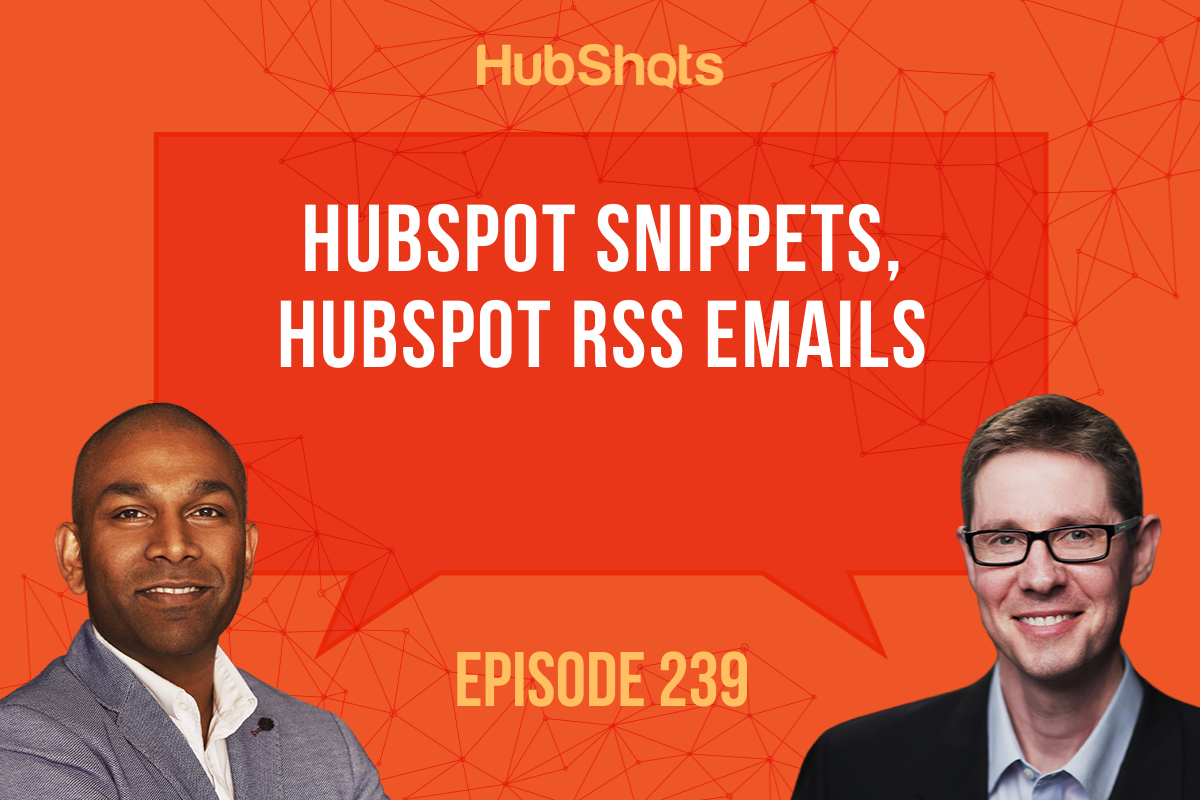
Welcome to HubShots Episode 239: HubSpot Snippets, HubSpot RSS Emails This edition we dive into: Our upcoming HubShots 28-Day Challenge Subscribe...
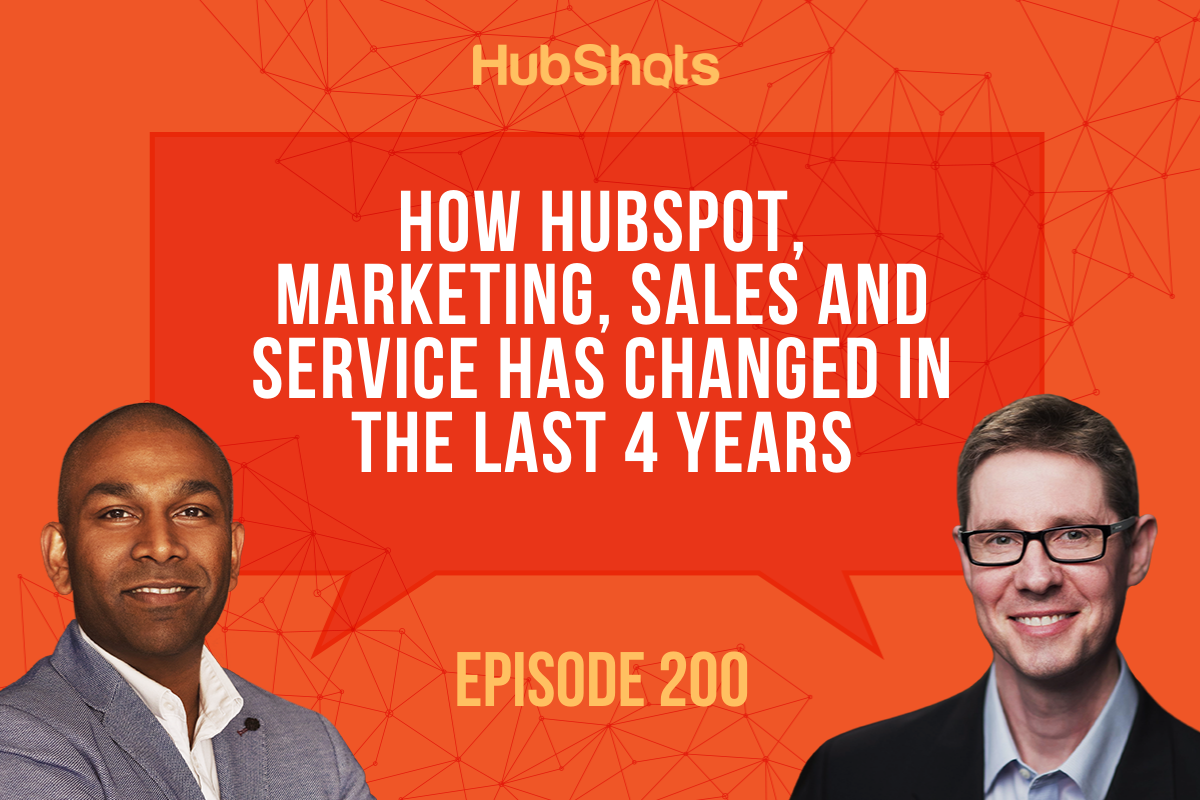
Welcome to HubShots Episode 200: How HubSpot, Marketing, Sales and Service has changed in the last 4 years This episode, our 200th, we reflect on how...
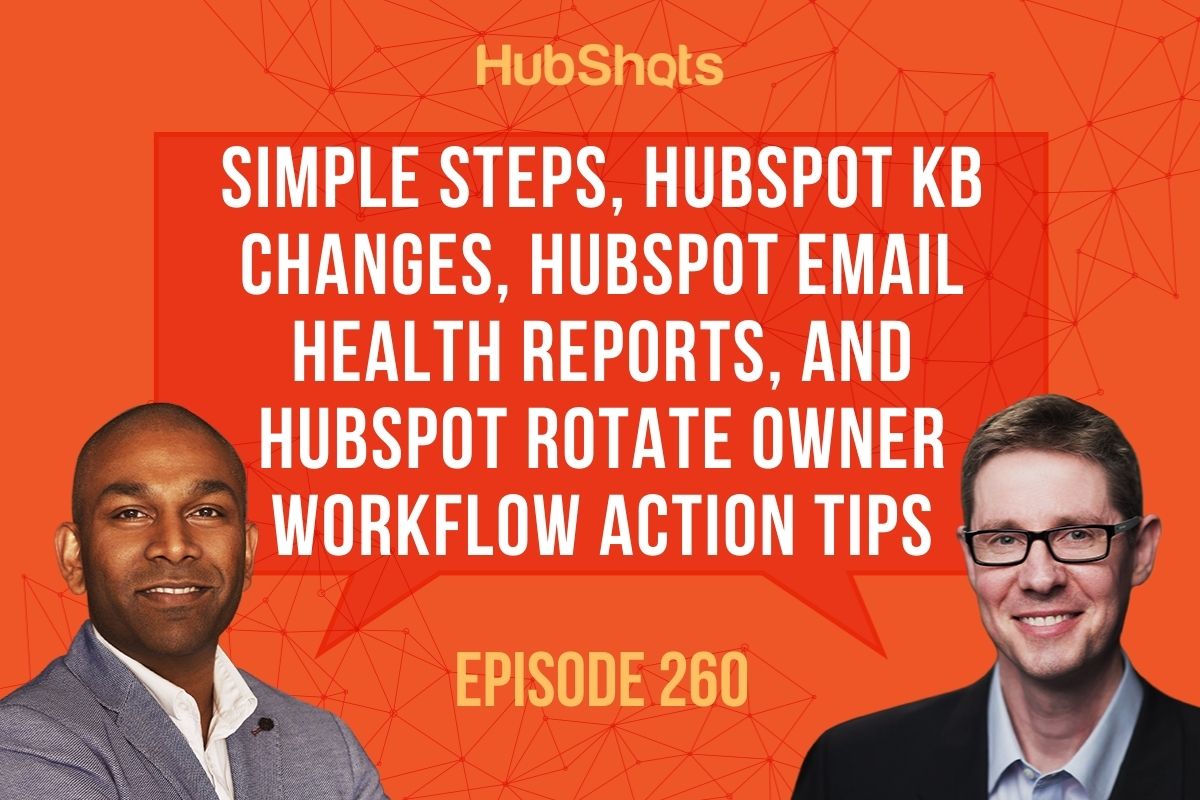
Welcome to HubShots Episode 260: Simple Steps, HubSpot KB changes, HubSpot Email Health Reports, and HubSpot Rotate Owner Workflow Action tips This...
